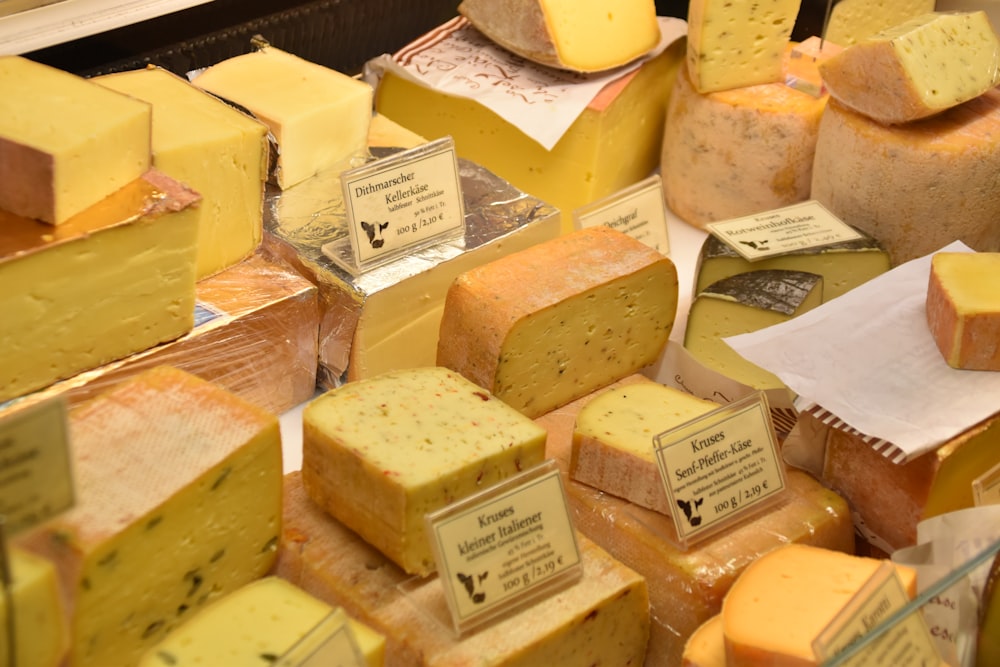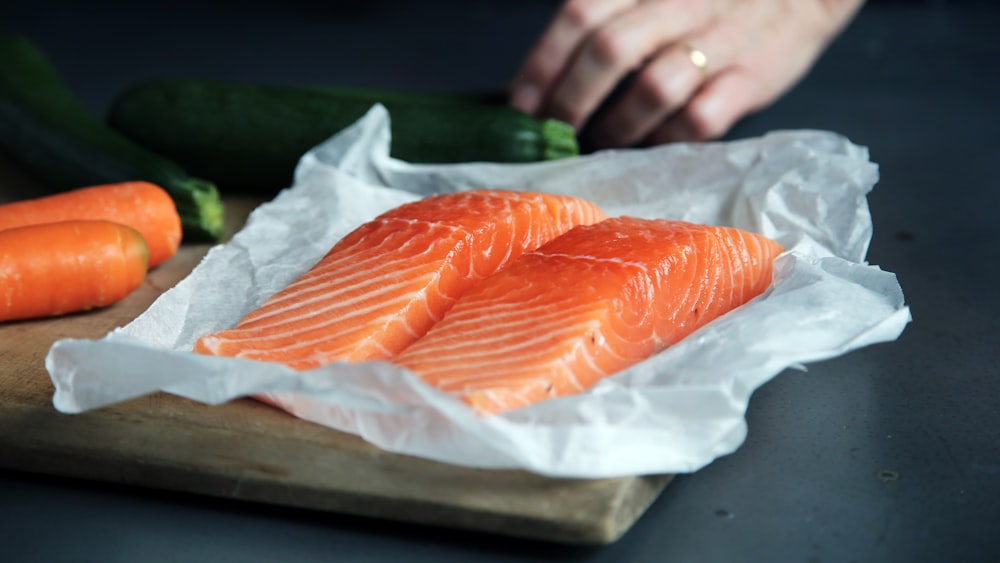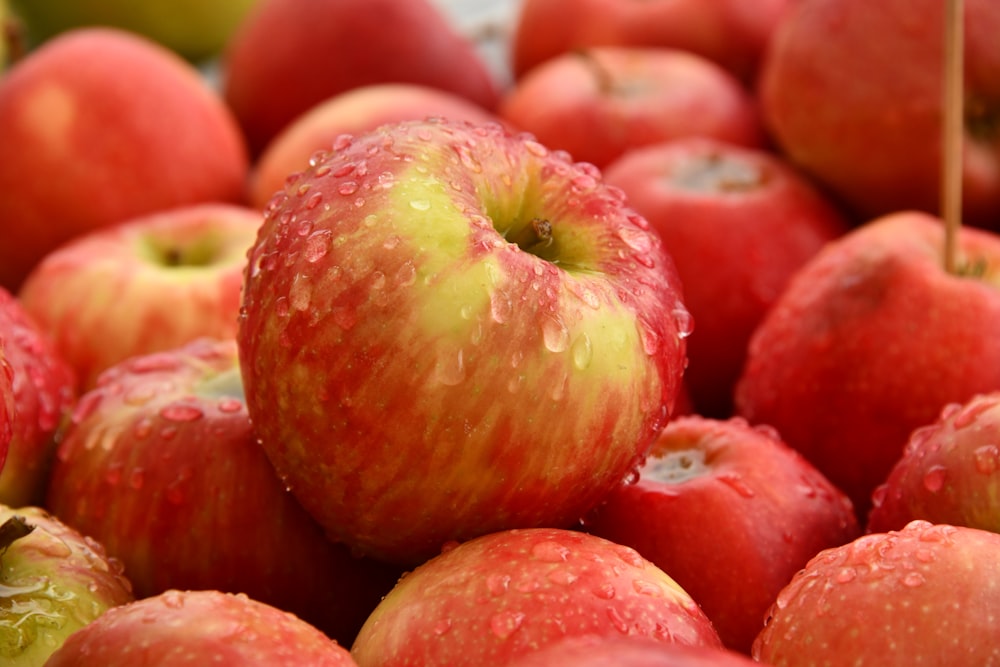How do our nutritional needs change as we age?

Our bodies are changing all the time. Every second, every minute, every hour of the days and nights—our cells are changing. This means our nutritional needs are changing too. The older we are, the more of certain nutrients our bodies require. Not fulfilling our bodies nutritional needs over time can lead to some serious health issues, which is why I’m writing this article for you today. I want to ensure you know just what you’re going to need as you get older, and the steps you can take to fulfill those needs.
Most of us eat less the older we get. But, this also means we need more nutrient-dense foods. As we age, we’re going to eat a diet that’s lower on the side of calories, and higher on the side of nutrition. Here are the most essential nutrients we need to make sure we’re getting enough of as we age:
Vitamin D + Calcium
As we age, our bones lose a lot of their integrity. We lose muscle mass, as well as bone density. Both vitamin D and calcium are essential vitamins for the health of our bones, especially as we get older. What’s more, our bodies have a more difficult time absorbing calcium from food sources. This is one reason we lose that bone density. Another reason is that our guts have a more difficult time absorbing calcium from food. Studies like this one, published in the journal, Calcified Tissue International, as well as this one, published in the journal Annals of Internal Medicine, explain further why this is true.
One of the culprits has to do with vitamin D. Our bodies need vitamin D in order to absorb calcium. As we age, the body has a more difficult time producing vitamin D. In fact, vitamin D deficiency is quite common in older adults. And more and more these days, it’s common for a large majority of the population. For this reason, we need to supplement with vitamin D, and make sure we’re spending plenty of time outside under the natural sunlight. Cod liver oil can be especially beneficial for older adults.
However, it’s important to note that as our skin thins with age, vitamin D production from the sunlight isn’t as efficient as it is when we’re younger. To help your body produce vitamin D, not only do supplements help, so do vitamin D-rich foods. Here are some of the best foods to eat to help support calcium and vitamin D production: tuna, salmon, sardines, rainbow trout, mackerel, kale, spinach, collards, quinoa, white beans, soybeans, cheese, beef liver, eggs, dairy products, and foods that are fortified with vitamin D.
Protein
Protein is a big factor here. The older you get, the more prone you are to lose bone density and muscle mass. Many even develop a condition known as sarcopenia. Sarcopenia can cause bone fractures and increase your risk for injuries and falls. Eating adequate amounts of protein can help prevent sarcopenia. In fact, studies have even proven this to be true. This one, published in the American Journal of Clinical Nutrition, found that aging men and women who ate a high protein diet lost 40% less muscle mass than the men and women in the study who did not.
As we age, we need to treat our bodies (and minds) to a combination of a protein-rich diet, mixed with regular exercise that helps build muscle mass. Resistance training, yoga, Pilates, calisthenics, and lifting good ol’ fashioned free weights from the comfort of our own homes are all ways to prevent sarcopenia and maintain bone and muscle composition as we get older.
Vitamin B12
Vitamin B12, also known as cobalamin, has two primary functions. First off, it’s necessary for the production of red blood cells. Secondly, it’s essential for our brains to function properly. As you probably know, brain function declines with age. We’re often sharper when we’re younger, and for some, memory declines as the years pass. Like other nutrients, the body doesn’t absorb vitamin B12 as well when we get older—especially past the age of 50. According to this study, published in the journal, Advances in Nutrition, vitamin D deficiency is very real for the elderly. It’s something we need to prevent, given the fact that this can impair red blood cell function.
Luckily, we can take a B12 supplement, and also get vitamin B12 by eating more healthy B12 sources. Foods containing the highest amounts of vitamin B 12 are: meat, eggs, shellfish, dairy, and fish. Because this vitamin is only found in animal foods, vegans and vegetarians should take a high-quality B12 supplement, or eat B12-enriched foods as they get older.
Omega-3 fatty acids
We all need to eat more omega-3 fatty acid-rich foods. But, we need to eat even more of them as we age for a number of reasons. First off, these healthy fats are essential for brain health. Because cognitive decline is a symptom of aging, we can boost cognition by eating omega-3’s, and/or taking a high-quality omega-3 supplement. And because omega-3 fatty acids are essential for healthy heart function, we all must get enough of them if we’re going to prevent cardiovascular issues.
Many studies like this one, published in the journal Diabetes Care, shows how omega-3 fatty acids can reduce some of the major heart disease risk factors like high cholesterol, and high blood pressure. Heart disease kills more elderly people than any other kind of degenerative disease, which makes omega-3 fatty acids an even more important nutrient as we get older. So, take a supplement, or eat more omega-3 rich foods like: wild-caught salmon, mackerel, shrimp, oysters, trout, sardines, seaweeds, algae, grass-fed beef, chia seeds, flax seeds, hemp seeds, walnuts, kidney beans, and edamame.
Potassium
As we get older, we’re at greater risk for high blood pressure, heart disease, osteoporosis, and kidney stones. To prevent all of these maladies, we need to get more potassium in our diet. Potassium rich foods include: bananas, sweet potatoes, avocados, spinach, coconut water, watermelon, tomato paste, black beans, white beans, butternut squash, potatoes, beets, pomegranate, Swiss chard, and edamame. You may also want to add a high-quality multivitamin to your daily regimen, which will naturally include potassium and other vitamins and minerals you’ll need as you age.
Magnesium
Magnesium is a super important mineral for all ages. However, as we get older, our risk for being deficient gets higher for a number of reasons. One of which has to do with our diet. The others have to do with medications we might be taking, and changes which take place within our gut—the ones that slow the absorption of various vitamins and minerals. Luckily, there are ways to get more magnesium into the diet. You can get a magnesium powder and add it to water, a tasty way to hydrate. You can also eat more of the following foods: salmon, mackerel, halibut, pollock, spinach, Swiss chard, potatoes (skin on), okra, edamame, tamarind, quinoa, wheat germ, bran cereal, tempeh, soy nuts, black-eyed peas, black beans, lima beans, navy beans, garbanzo beans, pinto beans, tofu, cashews and cashew butter, almonds and almond butter, flaxseeds, and peanut butter. A multivitamin with magnesium is always a good idea, as is adding a protein powder with plenty of magnesium to your morning smoothie.
Fibrous foods are essential as we get older
Because constipation is often associated with old age, we need to turn that association on its head. We can do this by eating a diet that’s full of fiber-rich foods. Aging women are more prone to constipation than men. And both sexes tend to experience it more often past the age of 65. However, if you keep up a regular exercise regimen, and avoid taking pharmaceutical meds, your chances of being constipated are far less.
This is key, as the health of your digestive system is essential for healthy longevity. No matter how old you are, if you’re constipated for more than a couple days, you need to pay attention and examine your lifestyle. Diverticular disease is quite common among older adults, especially in the Western world. This is because, the Standard American Diet, for example, is sorely lacking in fiber. A fiber-rich diet, on the other hand, can prevent diverticular disease altogether.
One way to get more fiber in the diet is to eat like the Greeks. They typically eat a salad before any other course. Eating a salad before you eat anything else is a surefire way to ensure you get more fiber in your diet. Another way is to make sure you eat a vegetable with every meal, no matter what.
High fiber foods
- Apples
- Celery
- Oats
- Buckwheat
- Quinoa
- Barley
- Avocados
- Prunes
- Berries
- Pears
- Bananas
- Broccoli
- Artichokes
- Kale
- Sweet potatoes
- Lentils
- Garbanzo beans
- Split peas
- Lima beans
- Chia seeds
- Almonds
- Sunflower seeds
Hydrate, hydrate, hydrate
It matters not how old you are when it comes to drinking enough water because most of us don’t. However, as we age, we need to pay even greater attention to our body’s hydration needs because we’re all around more vulnerable to things. More than anything on the planet, we need water, and being more prone to dehydration as we age means we really need to pay attention to how much water we drink. We need water more than we need food. We need water for every bodily function, and we especially need it for kidney health as we age. This study further illustrates how dehydration impacts older adults and the elderly.
One reason we’re prone to dehydration the older we get is that we don’t often know we’re thirsty. Our bodies have receptors that tell us we’re thirsty, and it seems the older we are, the less effective those receptors are. This simply means we need to pay more attention to our water intake. Make sure you drink at least 8-10 glasses of clean water each day—more if you’re very active, and more in the hot, summer months. Get a water purifier to clean out all the toxins if you can.
Boost your immunity with food
All the systems in our body need more support as we age, including our immune system. Rather than rely upon the modern medical system to take care of you, you need to boost your immunity via lifestyle to ensure you can stay naturally healthy throughout your life. Nutrition is a key player here, and you’ll want to make sure you’re incorporating plenty of the following immune-boosting foods to your diet:
-
Lemons and limes
Add lemon and lime juice to purified water, and sip throughout the day.
-
Ginger and honey
Sip on homemade ginger tea with raw honey during colder months.
-
Bone broth
Bone broth is a hue immune booster. Make your own or buy it already made.
-
Garlic and onions
These two foods are great immune boosters. Add them to the bases of pureed vegetable soups in the fall and winter months.
-
Olive oil and apple cider vinegar
Make salads with a high-quality olive oil and apple cider vinegar every day.
-
Mushrooms
Mushrooms of all kinds are great for building immunity. Eat as many types as you can, or supplement with a high quality mushroom powder.
Ways to boost appetite
As we age, we often lose our appetite, for a number of reasons. Many older adults actually struggle to eat enough food in a given day. What a switch from our younger years! The trouble with this is, we can become nutrient deficient and thus, more prone to various diseases. Why do we lose our appetite in our older years? Changes in hunger hormones and a decreased ability to smell and taste foods certainly contributes to a loss of appetite. But, so does depression, which affects many elderly today. As such, it’s really important that we make sure we’re getting the nutrients we need, in order to age with grace. Eating lots of small snacks throughout the day can prevent and/or reverse nutrient deficiency. Some of my favorite snacks are as follows:
- Apples with almonds
- Apples with almond butter
- Apples and cheese
- Hard-boiled eggs and cheese
- Bananas and almond butter
- Bananas and cashew butter
- Olives and salami and pickles
- Yogurt with honey and berries
- Trail mixes
- Mozzarella with fresh tomatoes and basil
- Crudites with hummus
- Salsa and guacamole
So, eat up and eat well! You deserve to age gracefully!



